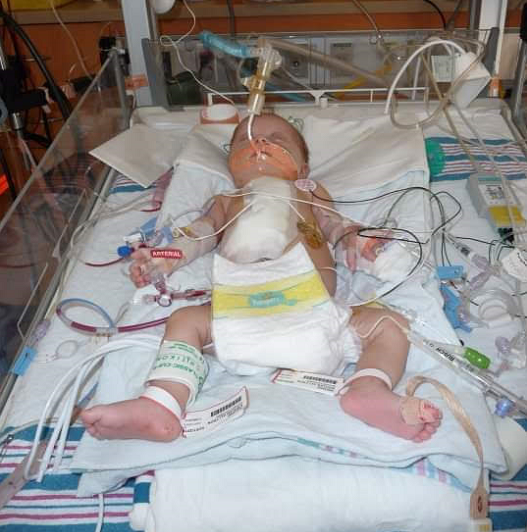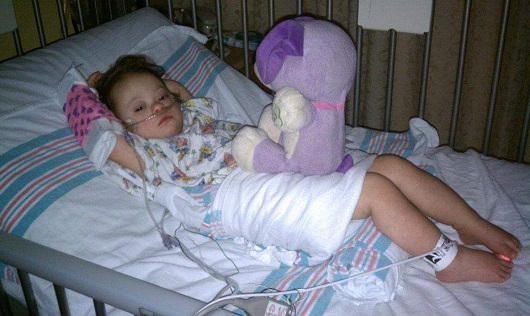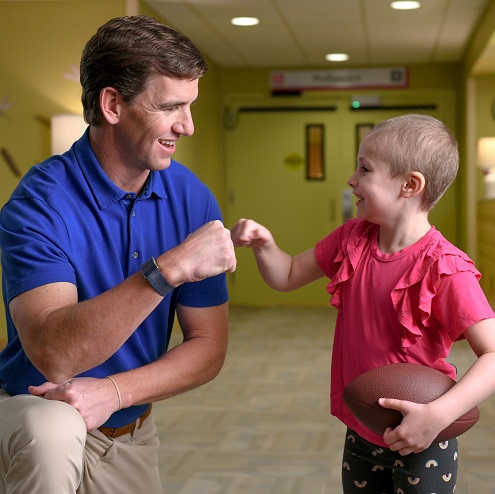13-year-old Thriving With Immunoglobulin Replacement Therapy

May 05, 2023
Just over a month after her birth in winter 2010, Ally Kistler, who has Down syndrome, had heart surgery to repair a hole in the wall of her heart. It was a dramatic start to her life, but after the surgery, everything progressed as expected—until she was 18 months old and admitted to the pediatric intensive care unit with RSV and pneumonia.
From that point on, Ally and her parents were at the hospital on a regular basis. Ally had fevers nearly every month, and recurrent sinus infections would lead to pneumonia. “From 2012 to 2015, we were frequent flyers at the hospital for pneumonia,” Ally’s mom, Amy, says.

Nothing helped stop the infections. Ally had her tonsils and adenoids removed in the hopes that it would curb the infections, and she was put on round after round of antibiotics. In 2013, to better understand the source of the recurrent infections and find a long-term treatment, her pediatrician referred her to Kevin Slavin, M.D., a pediatric infectious disease specialist and chief quality officer for Hackensack Meridian Children’s Health.
Dr. Slavin suspected something was going on with Ally’s immune system. Some children with Down syndrome are at risk for having frequent sinus and ear infections because the genetic mutation that causes Down syndrome causes structural challenges with sinus and ear drainage.

Children with Down syndrome also tend to have lower muscle tone, which means coughing and clearing the airways may be more difficult. “But what Ally was experiencing seemed excessive,” Dr. Slavin says.
Finding the Cause: Immune Deficiency
Working with now-retired pediatric immunologist Kathleen Haines, M.D., Dr. Slavin did an immune system evaluation of Ally. They discovered that she had a decreased antibody response to the type of bacteria commonly associated with sinus infections, pneumonia and other respiratory infections.
To treat her immune deficiency, Ally began antibody replacement therapy, also called immunoglobulin (IgG) replacement therapy, administered monthly through an IV.
During her six-month trial on IgG, the frequency of Ally’s infections dropped markedly. But as soon as the trial ended, she was back in the emergency department. Ally’s care team at the Children’s Hospital advocated for Ally with the Kistlers’ insurance company.
“They just worked so hard for us,” Amy says. “They really took care of us every step of the way. We really felt cared for emotionally as well as physically. I always felt like they went the extra mile.”
After almost a year, approval for the treatment finally came through, and Ally went back on the IgG therapy. She’ll be on the therapy for the foreseeable future, Dr. Slavin says, but some children are able to stop the treatment as they age and their immune systems mature.
Making up for Lost Time
Today, Ally, now 13, still gets far fewer sinus infections, and she has not been hospitalized as the result of an infection since starting the therapy. “The IgG has been pretty much a lifesaver,” says Amy. “It has changed our lives.”
Before IgG therapy, Ally’s parents were extremely careful about her potential exposure to anything that may trigger an infection. “We were scared, fearful and anxious for a very long time,” Amy says. “Now, we just traveled post-COVID on an airplane in the winter. We would have never done that before.”
Ally is making up for lost time. She participates in Special Olympics, plays basketball, runs track, and does gymnastics, dance, cheerleading, ice skating and horseback riding. “We’re excited that we can let her go out and be in the community,” says Amy.

Next Steps & Resources:
- Meet our source: Kevin Slavin, M.D.
- Learn about care for pediatric infectious diseases
- To make an appointment with a pediatric specialist near you, call 800-822-8905 or visit our website.
The material provided through HealthU is intended to be used as general information only and should not replace the advice of your physician. Always consult your physician for individual care.






